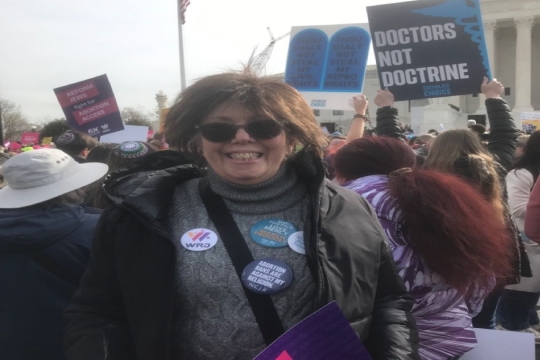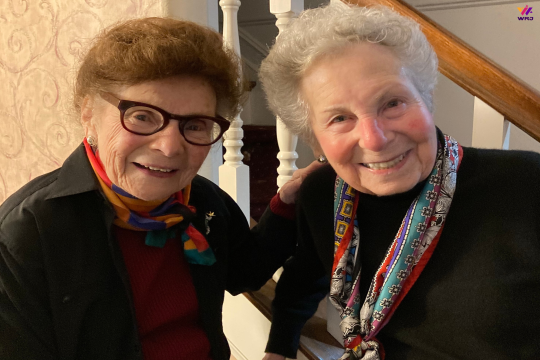WRJ has a robust policy around gun violence prevention and gender-based violence. In 1991, WRJ passed a resolution on Crimes Against Women, calling upon its members to educate about and advocate against domestic abuse in order to protect the life, well-being and health-both physical and emotional-of all. In 2013, WRJ’s Board of Directors passed a statement on gun violence prevention, calling upon all its American sisterhoods to urge the immediate enactment of legislation that would serve to prevent gun violence and to educate communities to become knowledgeable advocates for strong gun violence prevention measures.
A few months ago for Domestic Violence Awareness Month, I wrote about the unlikely connection between domestic violence and gun violence, and how the intersection of these two issues has resulted in continuous threats to women’s safety in the United States. Of U.S. women killed by intimate partners, 55% were killed with guns and 76% experienced stalking in the year prior to their murder. As January is National Stalking Awareness Month, it is important that we also explore the connection between gun violence and stalking. Although stalking is a crime that is seldom spoken about, one in every six women will experience stalking during her lifetime. Further, stalking is an indicator of future violence, particularly in the context of domestic violence. One study found that over three-quarters of women murdered by an intimate partner were also stalked by the abuser in the preceding year. Currently, individuals who are convicted of misdemeanor stalking are not prohibited from purchasing guns. This is a major loophole in our gun purchasing system. Further, often when people are charged with a domestic violence crime that would render them a prohibited purchaser of guns, they enter into a plea agreement resulting in a reduction of the charge to a lesser crime that can include stalking. It is imperative that we fix our laws in order to keep women safe. Jewish tradition tells us, “do not stand idly by while your neighbor’s blood is shed” (Leviticus 19:16). This text teaches us that it is not enough to refrain personally from using guns for violent purposes, but that we must also take action to end gun violence. Luckily, federal legislation has been introduced in both the House and the Senate to close this loophole. The Zero Tolerance for Domestic Abusers Act (H.R. 3130) and the Protecting Domestic Violence and Stalking Victims Act (S. 1520) would close loopholes that currently allow convicted stalkers, and domestic abusers, to legally purchase guns. When convicted abusers and stalkers have guns, women’s lives are at risk. There are a few ways that you can take action to protect stalking victims from gun violence:
- Briefing Call: The Interfaith Coalition Against Domestic and Sexual Violence, of which the RAC is a member, is mobilizing people from all faiths to educate themselves further on this issue and to take action. On January 21, 2016 at 12 PM ET, the coalition will host a briefing call for coalition members, clergy, and lay leaders to learn more about the intersection of domestic violence and guns, current legislation, and why this is an important issue for the faith community. Click here to register for the call.
- Sign on Letter for Clergy Members: The Interfaith Coalition Against Domestic and Sexual Violence is also organizing a sign-on letter for clergy to show congressional leadership that preventing domestic violence is a priority for our faith communities. Click here to view the letter and to sign on.
- Contact your Member of Congress Directly: take action and tell your Members of Congress to ensure that domestic abusers do not have access to guns.
For more information on gun violence prevention, visit our issue page. For more information about National Stalking Awareness Month, visit this webpage. This post originally appeared on the RAC blog.
Related Posts

Andrea Stillman: A WRJ Leadership Spotlight


